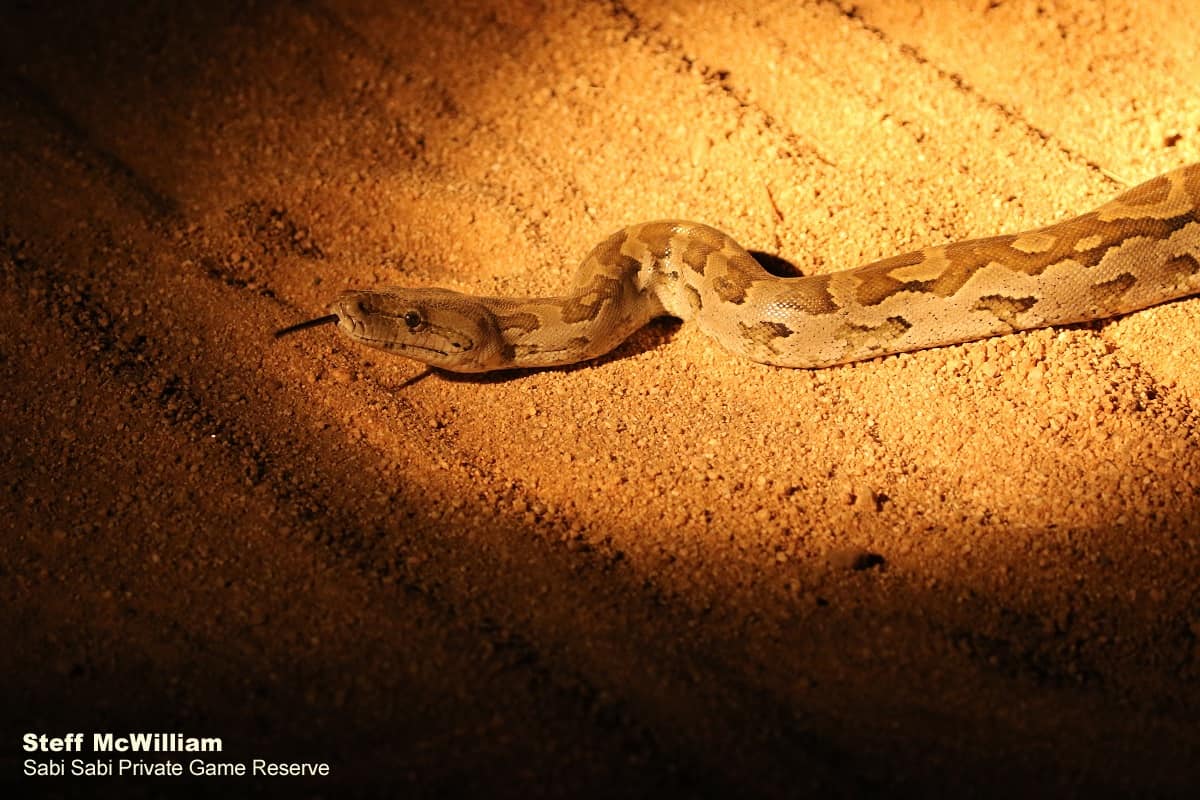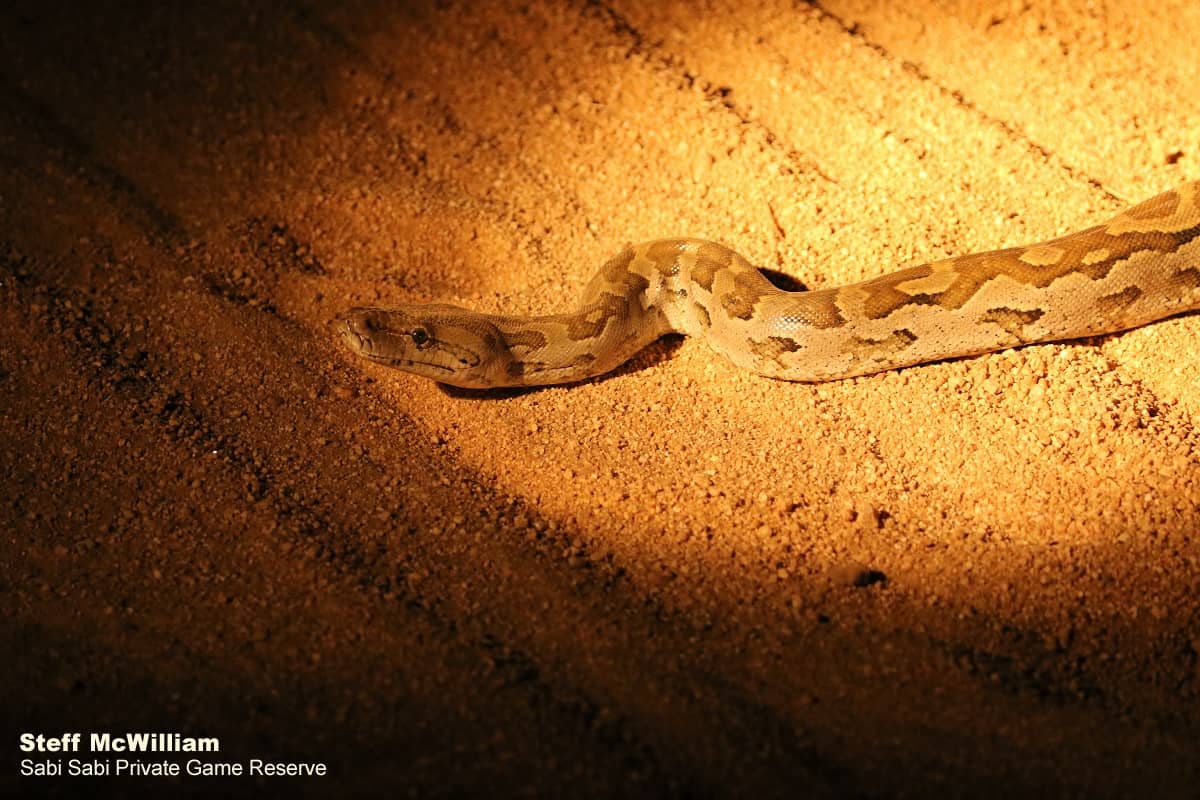Southern African Rock Python
on Sep 27, 2019Species name: Southern African Rock Python
Scientific Name: Python sebae natalensis
Weight: Male: 20-40 kg - Female: 30-60 kg
Length: Male: Up to 3.5m - Female: Up to 5m
General Habitat: Inhabiting a wide variety of habitats including Savannah, Woodlands, Thickets and Forested areas.
Diet: Many different prey items depending on the age and size of the animal. Scrub hares, rodents, bats, monkeys, birds, antelope, monitor lizards, small crocodiles and even the young of predators such as leopard cubs, wild dog pups and hyena cubs have all been recorded.

The Southern African Rock Python is the fourth largest snake on the planet, behind the Green Anaconda at number one and the Burmese and Reticulated Pythons. They are specialist ambush hunters laying in wait for an unsuspecting animal to approach within striking range. They are non-venomous although they are equipped with many sharp hooked teeth perfect for grasping their prey and holding them in place as they wrap their powerful bodies around their prey and constrict them to death. They tighten their coils whenever their victim breathes out and in addition to asphyxiation, cause of death may include cardiac arrest. With no limbs to help dismember their prey, they are required to swallow it whole. Rather than dislocating their jaws, they (their jaws) are connected by flexible ligaments that expand to accommodate for large meals. They then “walk” their jaws over their prey, slowly consuming it whole.
Pythons are beautiful snakes covered in cryptic patterning of alternating dark brown, tan and cream, providing them with excellent camouflage. They are shy animals and will usually try to avoid any contact with man. As fairly slow and sluggish snakes, they may retaliate in defense if threatened by man and it is always advised to avoid interfering with them in their natural habitat, especially if they have recently eaten as any disturbance or stress may cause them to regurgitate their meal that they have worked so hard to obtain.
One of the more unusual snakes in terms of breeding as they lay anywhere between 20 and 80 eggs at a time that develop with the help of their mother as she actively incubated them. She may lie outside in the sun to warm her body and return to her nest where she will wrap her warm coils around them as they develop. She does not bury her eggs or abandon them but rather lays them in an underground burrow, termite mound or cave where she will tend to them for the entire incubation period of about 90 days. Once hatched she will provide some form of protection until they are large enough to fend for themselves.
Southern African Rock Pythons grow slowly but may reach, or in some cases even exceed lengths of 5.8m and weigh up to 80kg. Females will grow larger than males and they are able to live to up to 12 years. As young they have many predators including Leopard, Southern Ground Hornbills, Secretary birds, Lions, Crocodiles, Monitor Lizards and Honey Badgers although their greatest threat by far is man.
My Memorable Sighting
One evening we were following the dominant male leopard of the southern section of Sabi Sabi when we noticed something moving in the grass ahead of us. As we drove past, we stopped to investigate the source of commotion to find a fairly young Southern African Rock Python looking to cross the road. With the leopard still in sight, it froze as he moved off, unaware of its presence. Leopards have been known to actively hunt and consume adult African Rock Pythons and although some of the guests were disappointed they didn’t get to see this take place, the python bided its time until the coast was clear before it proceeded to cross the road into the safety of a thicket nearby.
Photo & Video Content













